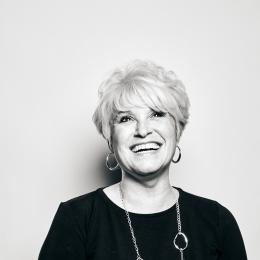North Highland’s work transforming omnichannel marketing for leading global pharmaceutical companies was highlighted during a two-day Digital Health Coalition (DHC) virtual conference in April 2022. Attendees learned that the work to transform their approach and make it future-ready remains a big lift since it affects three key audiences: 1) marketers, 2) sales representatives, and 3) Health Care Providers (HCPs).
Throughout the course of the event, the North Highland team identified three major themes worth sharing with the modern marketer:
- A flexible framework is key to omnichannel marketing.
Today’s forward-thinking pharma marketers are willing to test and learn, with business agility as their keystone. They have many levers to pull, and the way they orchestrate their efforts creating modular content, testing different channels, utilizing actionable data, and measuring success enables them to pivot quickly from one experience to another.
The goal: Knowing which levers to pull and when so that their message is received and the HCP or patient engages. Admittedly, medical, legal, and regulatory review is often a bottleneck, particularly where it comes to modular content creation, something everyone wants to resolve.
- Optimizing omnichannel is not easy. It requires close orchestration with the field.
Traditionally, pharma marketing organizations were not built to optimize omnichannel methodologies, but this is changing due to the shift to digital-first marketing during the Covid-19 pandemic. Pharma marketing teams have found that this is not an easy change to make. With omnichannel innovations affecting three major stakeholder groups—marketers, sales representatives, and customers (be they HCPs or patients)—you can’t remove much-needed change management from the budget. There is simply too much at stake.
Modern marketing must work with the field to effectively engage HCPs and patients. In other words, sales representatives must perform their roles and responsibilities in new and different ways. It takes thoughtful and active change management to build these new capabilities and grow your people.
And changes aren’t limited to employees alone: Customers, who already suffer from information overload, will tune out if they receive too many of the same messages across different channels. Everyone wants to know “what’s in it for me,” and for each of these stakeholders that is something different.
- HCPs want personalized and relevant information.
Sales representatives, who are best when face-to-face with the HCP, are being asked to work in completely different ways across multiple channels: video, phone, and text, among others. Some hear “omnichannel” and think you are coming for their jobs. However, sales representatives are still the primary custodian of the HCP relationship. It’s the represnetative who really knows the HCP’s practice. Omnichannel is about presenting a cohesive marketing story to customers across every platform they use to consume information, and that includes the sales representative and face-to-face interaction.
A true omnichannel experience is optimized only when the representative is part of the entire process and not simply fed automated suggestions from the customer relationship management (CRM) tool. Some marketing teams report that representatives typically dismiss 65 percent of automated suggestions because they relate to actions they have already taken.
True transformation includes rethinking your workforce strategy so that your teams have the skills (or the opportunities to upskill) for an omnichannel world. It also includes a culture of psychological safety, where it is okay to fail fast, as long as you try the next story on your backlog.
Automation is not possible without a real understanding of the voice of your customer. It’s a great tool for post-call reinforcement of the sale representative’s message and determining next best action.
Physicians at the DHC were clear that this message needs to be something new, important to patient outcomes, and worthy of their time.
What does a modern marketer need to do?
Every pharma company’s mission is to improve the health and wellbeing of people around the world. Key to achieving that vision is equipping HCPs with the information they need to confidently prescribe the life-sustaining or life-saving drugs for their patients.
The pandemic has accelerated the use of digital channels for pharma to convey its message. HCPs and patients know exactly how, where, and what information is available to them. Successful omnichannel programs are those that serve both the HCP and the patient. Sometimes marketers and sales reps need to be outstanding storytellers. Sometimes they need to simply sit back and listen.

